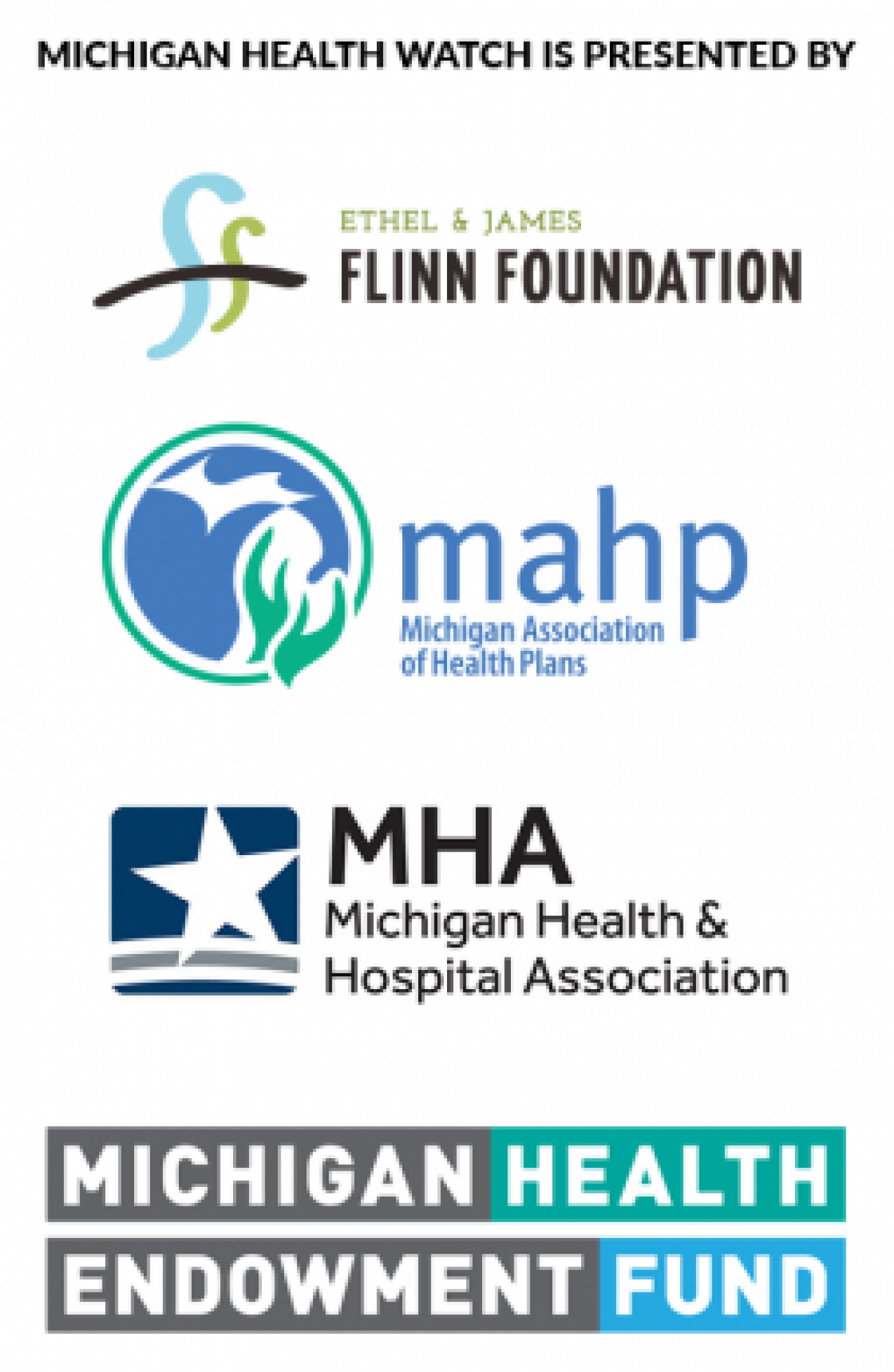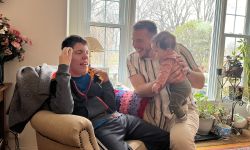Michigan Medicine: 22,000 coronavirus surgical masks from feds don’t work

About 22,000 surgical masks shipped from the federal government's strategic national stockpile to the University of Michigan in the midst of the coronavirus pandemic are not usable, and have had to be removed from Michigan Medicine's inventory.
Mary Masson, a spokeswoman for the Ann Arbor-based health system, said a shipment of 22,000 ear-loop surgical masks arrived last week from the federal stockpile, which was created to boost state and local supplies during public health emergencies.

About 2,000 of the masks were distributed to health care workers, Masson said, but "we found them to be less durable and so have removed as many as possible from inventory and are not distributing the rest.
“We found enough problems with the shipment,” she said, “that we didn’t want to use the remaining ones.”
This comes amid reports nationally that nearly 6,000 medical masks shipped from the national stockpile to Alabama had dry rot, and that faulty elastic on masks sent to Oregon also were unusable, according to the New York Times. It also reported 150 ventilators sent to Los Angeles were broken when they arrived and had to be repaired before they could be used.
The problems come at a time when hospital systems around many parts of the country are filled with patients who have the highly infectious novel coronavirus but don't have adequate personal protective equipment to reduce chances of healthcare workers getting sick.
Michigan, and metro Detroit, especially, have been hard hit by COVID-19. The state ranked fourth nationally Tuesday morning in the number of confirmed coronavirus cases, behind New York, New Jersey and Massachusetts, according to the Johns Hopkins COVID-19 Global Case Tracker.
Wayne County, which includes Detroit, along with neighboring Oakland and Macomb counties have the most cases — and deaths — in Michigan.
- The latest: Michigan coronavirus map, locations, updated COVID-19 news
- What Michigan's new coronavirus stay-at-home executive order means
- Can you buy seeds in Michigan? Confusion reigns over Whitmer stay-home order.
- What jobs are exempt from Michigan coronavirus lockdown? You may be surprised.
Washtenaw County, where Michigan Medicine is based, has the fifth-highest case count in the state.
"We’ve been accepting transfer patients from multiple southeast Michigan hospitals since the pandemic began," Masson said, providing some relief to overloaded metro Detroit hospitals. As of Monday, 234 patients with COVID-19 were hospitalized at Michigan Medicine.
Masson said the hospital system has alerted officials at the strategic national stockpile about the problem with the masks.
Messages seeking comment were sent Tuesday morning to the U.S. Centers for Disease Control and Prevention and the strategic national stockpile, but neither has immediately replied.
The Michigan Department of Health and Human Services said Tuesday that it hadn’t gotten reports of any broken ventilators that came to the state from the stockpile, but that it was still collecting details about defective masks.
Stories from the front
Bridge Magazine, Detroit Free Press and Michigan Radio are teaming up to report on Michigan hospitals during the coronavirus pandemic. We will be sharing accounts of the challenges doctors, nurses and other hospital personnel face as they work to treat patients and save lives. If you work in a Michigan hospital, we would love to hear from you. You can contact reporters Robin Erb rerb@bridgemi.com at Bridge, Kristen Jordan Shamus kshamus@freepress.com at the Free Press and Kate Wells katwells@umich.edu at Michigan Radio.
A USA Today analysis of a U.S. House Oversight Committee report detailed that, as of last week, Michigan had received the following supplies from the federal stockpile:
- 311,060 N95 respirator masks
- 740,018 surgical masks
- 148,672 face shields
- 121,704 surgical gowns
- 3,888 coveralls
- 618,930 gloves
- 400 ventilators
Other Michigan health care systems surveyed by the Detroit Free Press and Bridge Magazine did not report problems with the supplies they've gotten from the federal government.
Beaumont Health spokesman Mark Geary said the eight-hospital health system has received "multiple shipments" from the federal stockpile. Though some equipment and supplies came from "unfamiliar" brands, none were defective, he said.
Laura Blodgett, a spokeswoman for St. Joseph Mercy Health System, said it has received both masks and ventilators from the national stockpile, "and none have been defective so far."
Ascension Michigan said only that it is "grateful for all of the supplies we are receiving through our national and local agencies, community organizations and businesses, community member donations, and sister Ascension ministries."
Its spokeswoman, Melissa Thrasher, did not reply to an email message asking specifically whether any of the supplies from the national stockpile were defective.
DMC spokesman Brian Taylor said the system received N95 masks, face shields, isolation gowns, gloves and hand sanitizer from the stockpile, but he had no reports of them being defective.
RESOURCES:
- Hey, Michigan, here’s how to make a face mask to fight coronavirus
- Michigan coronavirus dashboard: cases, deaths and maps
- Michigan families can get food, cash, internet during coronavirus crisis
- How to give blood in Michigan during the coronavirus crisis
- 10 ways you can help Michigan hospital workers right now
- Michigan coronavirus Q&A: Reader questions answered
- How to apply for Michigan unemployment benefits amid coronavirus crisis
See what new members are saying about why they donated to Bridge Michigan:
- “In order for this information to be accurate and unbiased it must be underwritten by its readers, not by special interests.” - Larry S.
- “Not many other media sources report on the topics Bridge does.” - Susan B.
- “Your journalism is outstanding and rare these days.” - Mark S.
If you want to ensure the future of nonpartisan, nonprofit Michigan journalism, please become a member today. You, too, will be asked why you donated and maybe we'll feature your quote next time!








